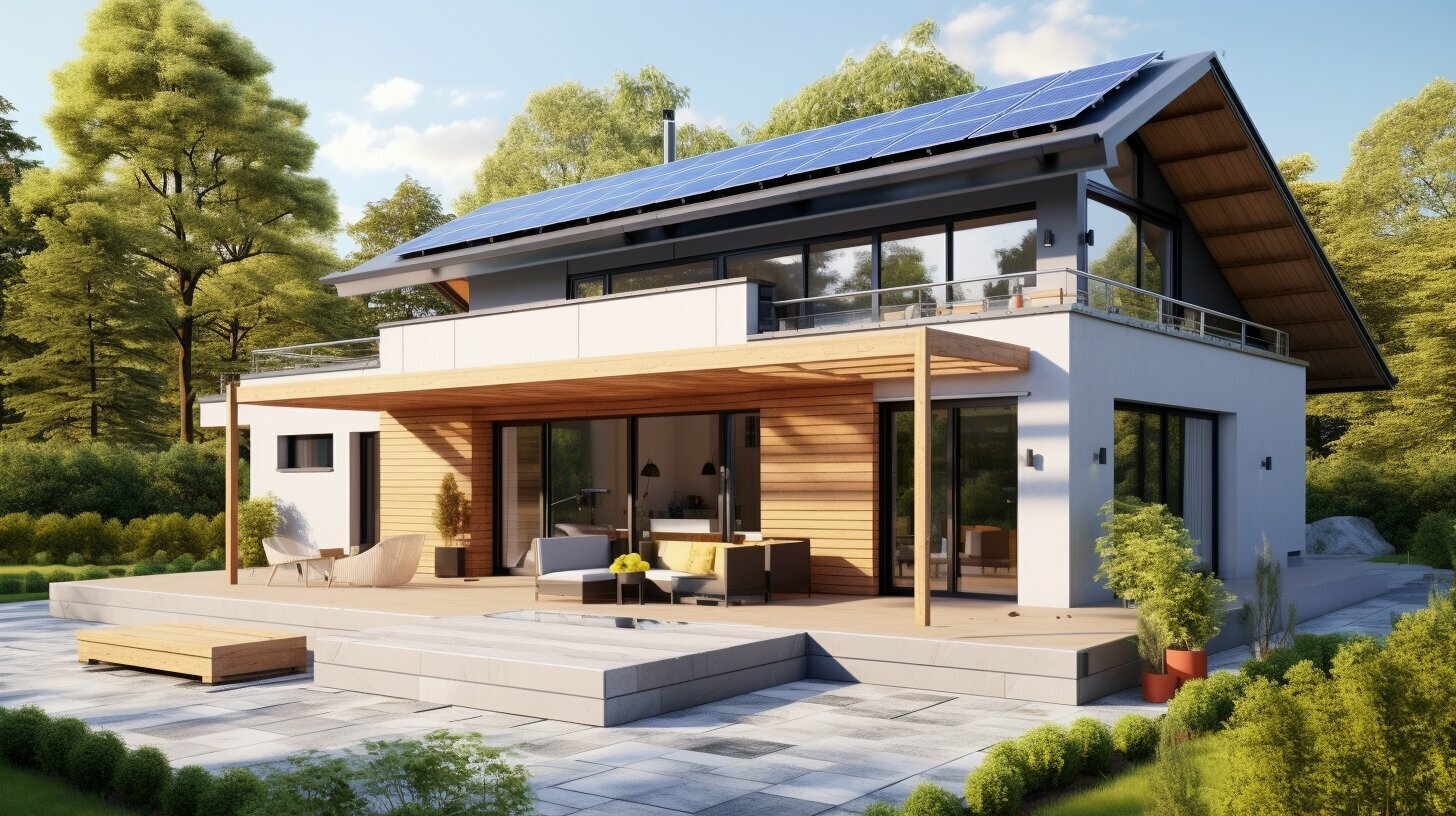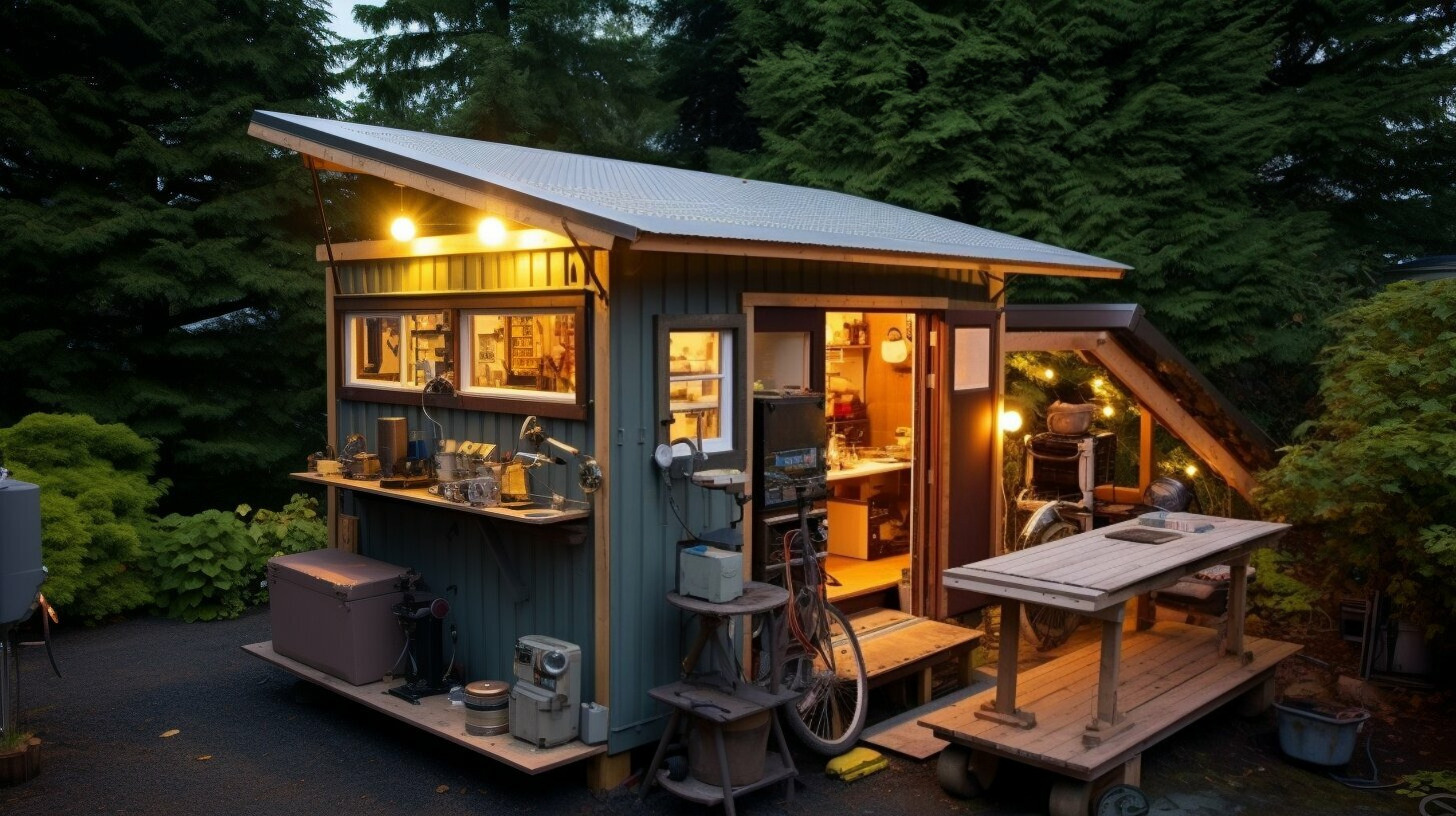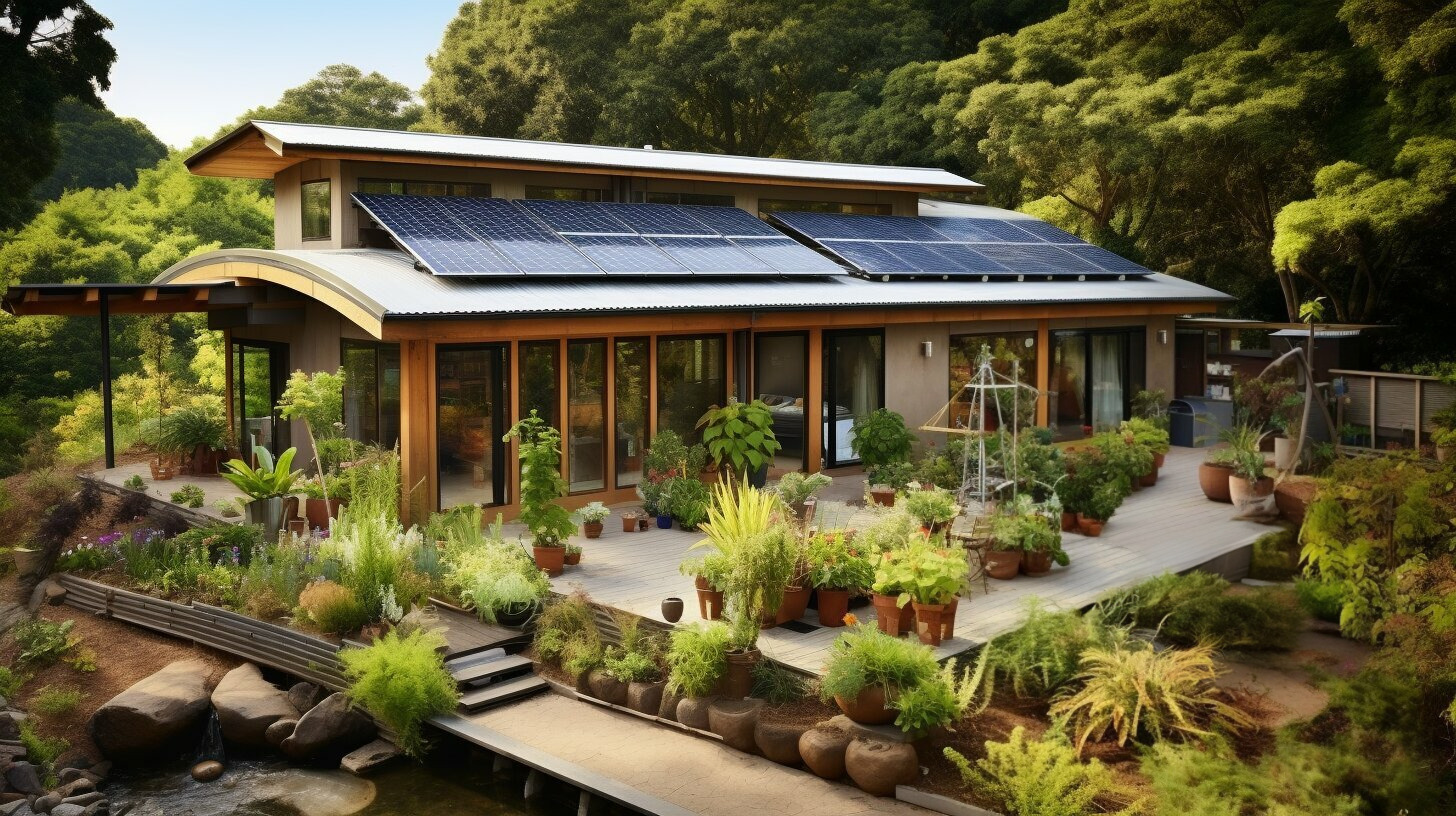If you’re looking for sustainable HVAC solutions that provide energy-efficient off-grid heating and cooling systems, you’ve come to the right place! By incorporating eco-friendly HVAC systems and utilizing renewable energy sources, you can stay comfortable all year round while minimizing your impact on the environment.
In this section, we will explore effective off grid heating and cooling solutions for your home. We will cover different sustainable HVAC solutions that can be used for off grid heating and energy-efficient off-grid cooling options. You will also learn about the latest off grid heating and cooling technologies that offer efficient and reliable solutions.
Key Takeaways
- Off grid heating and cooling systems provide eco-friendly and cost-efficient solutions for homeowners.
- Renewable energy sources can be harnessed to power sustainable HVAC systems.
- The latest off grid heating and cooling technologies offer efficient and reliable solutions.
- Choosing the right off grid HVAC system for your home is crucial for optimal performance and energy efficiency.
- Proper maintenance and troubleshooting are essential to ensure the longevity and efficiency of your off grid HVAC systems.
Understanding Off Grid Heating Options
When looking for sustainable HVAC solutions, it’s important to consider the various off grid heating options available to you. By utilizing renewable energy HVAC systems, you can minimize your reliance on non-renewable sources and reduce your environmental impact. Here are some of the most commonly used off grid heating options:
| Option | Description |
|---|---|
| Solar Thermal Systems | These systems use the sun’s energy to heat a fluid that is then circulated through the home’s floors or radiators. They are highly efficient and can provide heat even in cold temperatures. |
| Biomass Boilers | These boilers burn wood pellets or other organic materials to produce heat. They are eco-friendly and offer a renewable heating source. |
| Air Source Heat Pumps | These pumps extract heat from the air outside to heat your home. They are energy efficient and can provide both heating and cooling. |
Choosing the right off grid heating option depends on various factors such as the size of your home, the climate in your area, and your budget. It’s important to evaluate your needs and consult with a professional before making a decision.
By opting for off grid heating solutions, you can reduce your carbon footprint and save on energy bills. These sustainable HVAC solutions provide an eco-friendly and reliable source of heat for your home.

Off-Grid Cooling Options
When it comes to off grid living, cooling your home efficiently can be just as important as heating it. Fortunately, there are various energy efficient off grid cooling solutions available that can reduce your environmental impact and lower your utility bills. By utilizing eco-friendly HVAC systems, you can enjoy cool air in your off grid home without relying on the grid.
Evaporative coolers: Also known as swamp coolers, these systems use the natural process of water evaporation to cool the air. They require less energy than traditional air conditioning units and can be powered by renewable energy sources such as solar or wind power.
Geothermal cooling: This technology harnesses the constant temperature of the earth to provide efficient cooling. By utilizing a heat pump system, geothermal cooling can be powered by renewable energy sources and is one of the most sustainable HVAC solutions available.
Solar-powered air conditioning: These off grid cooling systems use solar panels to power the air conditioning unit. This technology can be expensive upfront but can save money in the long term by eliminating energy bills.
By incorporating these eco-friendly HVAC systems, you can achieve energy efficient off-grid cooling and reduce your carbon footprint. Investing in sustainable HVAC solutions for your off grid home can provide long-term cost savings and help preserve the environment.
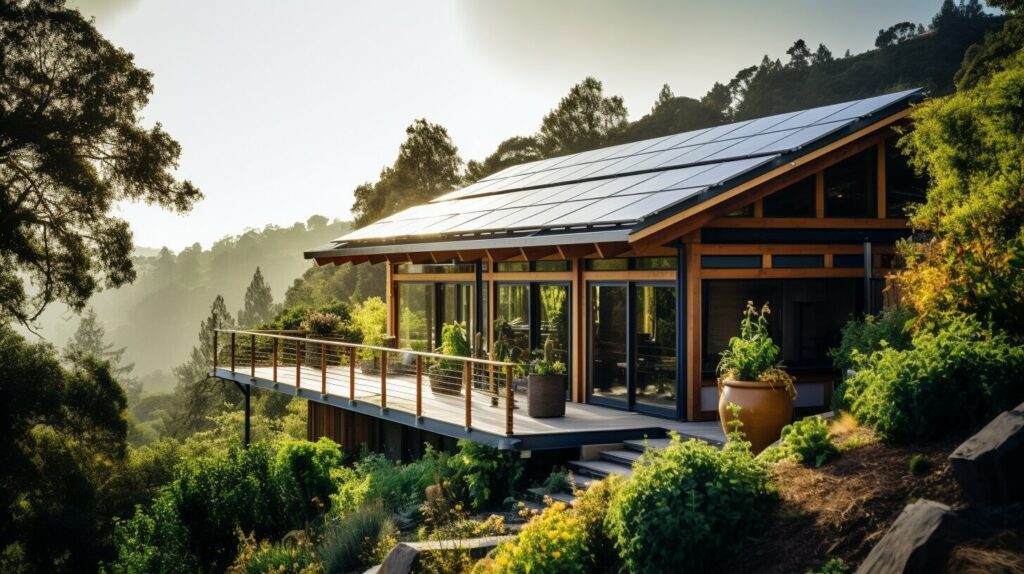
Off Grid HVAC Technologies
Advancements in off grid HVAC technology are making it easier than ever to achieve comfortable and sustainable heating and cooling. By incorporating these technologies into your off grid HVAC systems, you can enjoy increased energy efficiency and cost savings, while reducing your environmental impact.
Smart Thermostats
Smart thermostats are a popular off grid HVAC technology that can help you save energy and money. These thermostats use sensors and algorithms to learn your temperature preferences and adjust your heating and cooling systems accordingly. They can even detect when you’re away from home and adjust the temperature to conserve energy.
Some smart thermostats can also be controlled remotely through a mobile app, allowing you to adjust your HVAC systems from anywhere. These features make smart thermostats an ideal solution for off grid homeowners looking to optimize their energy usage and save money.
Heat Pumps
Heat pumps are another innovative off grid HVAC technology that can provide both heating and cooling. These systems work by transferring heat from the air or ground into your home, rather than generating heat from a fuel source. This makes them highly energy efficient and cost-effective.
There are several types of heat pumps to choose from, including air-source, ground-source, and water-source. Each type has its own advantages and disadvantages, so it’s important to research and select the right option for your specific off grid heating and cooling needs.
Energy Storage Systems
Energy storage systems are becoming increasingly popular for off grid HVAC solutions. These systems allow you to store excess energy generated from renewable sources, such as solar panels or wind turbines, and use it to power your heating and cooling systems when needed.
By utilizing energy storage systems, off grid homeowners can reduce their reliance on the grid and achieve greater energy independence. These systems also provide a reliable backup power source in case of power outages or emergencies.
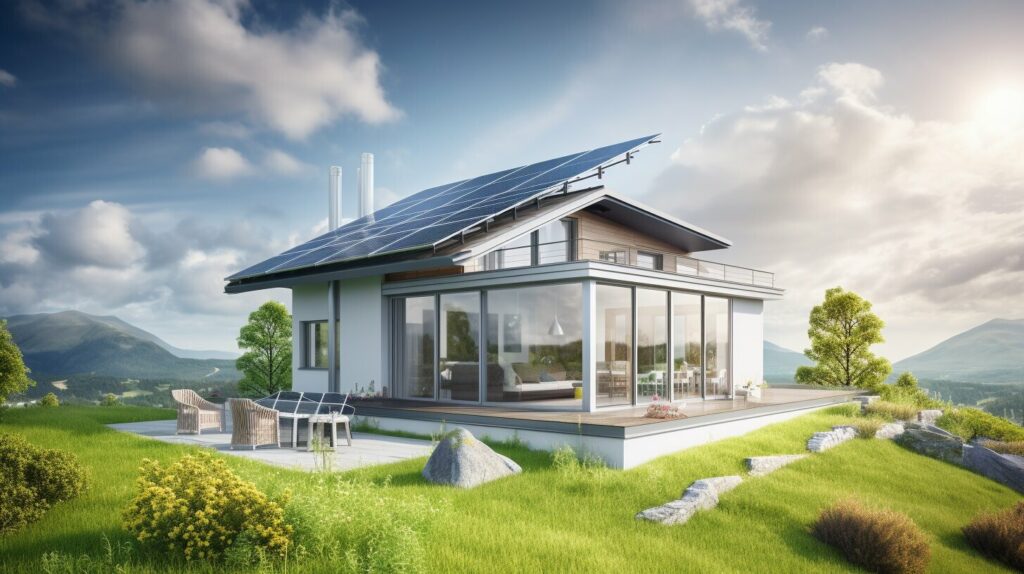
With these off grid HVAC technologies, you can achieve efficient and reliable heating and cooling for your home, while reducing your environmental impact. Consider incorporating these sustainable HVAC solutions into your off grid systems to enjoy increased energy efficiency and cost savings.
Benefits of Off Grid Heating and Cooling
Off grid heating and cooling provide numerous benefits for both homeowners and the environment. By adopting sustainable HVAC solutions, you can reduce your carbon footprint, save money on utility bills, and increase your self-sufficiency. Here are some of the advantages of off grid heating and cooling:
- Energy efficiency: Off grid heating and cooling systems utilize renewable energy sources, such as solar power, geothermal energy, and biomass, to heat and cool your home. These sustainable HVAC solutions are more efficient and emit fewer greenhouse gases than traditional HVAC systems.
- Cost savings: By reducing your reliance on the grid, you can save money on utility bills. Off grid heating and cooling systems also require less maintenance and have a longer lifespan than traditional HVAC systems, further reducing costs over time.
- Increased self-sufficiency: Off grid heating and cooling systems allow you to become more self-sufficient and less dependent on the grid. This provides a sense of security and can be especially beneficial in remote areas where access to the grid may be limited.
- Eco-friendliness: Off grid heating and cooling systems have a lower environmental impact than traditional HVAC systems, contributing to a greener and more sustainable future.
By choosing off grid heating and cooling, you can enjoy the benefits of sustainable HVAC solutions while minimizing your impact on the environment.
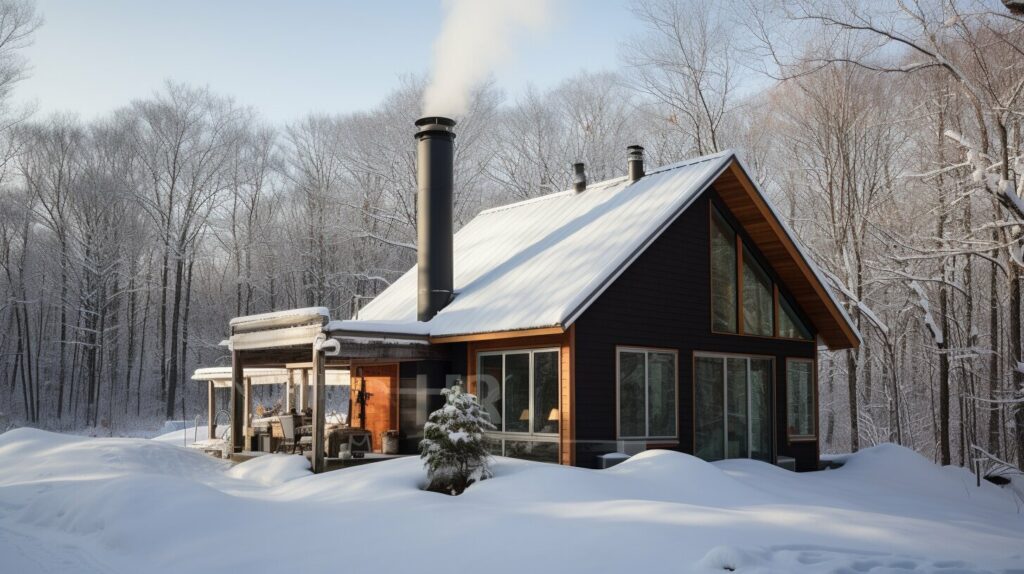
Choosing an HVAC System
When it comes to off grid heating and cooling solutions, it’s crucial to choose an HVAC system that meets your specific needs. Here are some factors to consider when selecting the right system for your home:
- Your Energy Needs: Evaluate your energy usage and determine the heating and cooling requirements for your home. This will help determine the size and capacity of the off grid HVAC system you need.
- Renewable Energy Sources: Consider the availability of renewable energy sources in your area. Depending on where you live, you may have access to solar, wind, or geothermal energy, all of which can power your off grid HVAC system.
- Installation Requirements: Off grid HVAC systems may require technical expertise for installation. Make sure you factor in the cost of installation and any ongoing maintenance and repairs needed.
- System Efficiency: Look for HVAC systems with high energy efficiency ratings. These systems can help you save money on utility bills and reduce your environmental impact.
When deciding which off grid HVAC system to choose, it’s important to weigh all these factors to find the right balance between cost, efficiency, and performance. By doing so, you can ensure optimal heating and cooling for your off grid home while reducing your reliance on the grid and minimizing your carbon footprint.
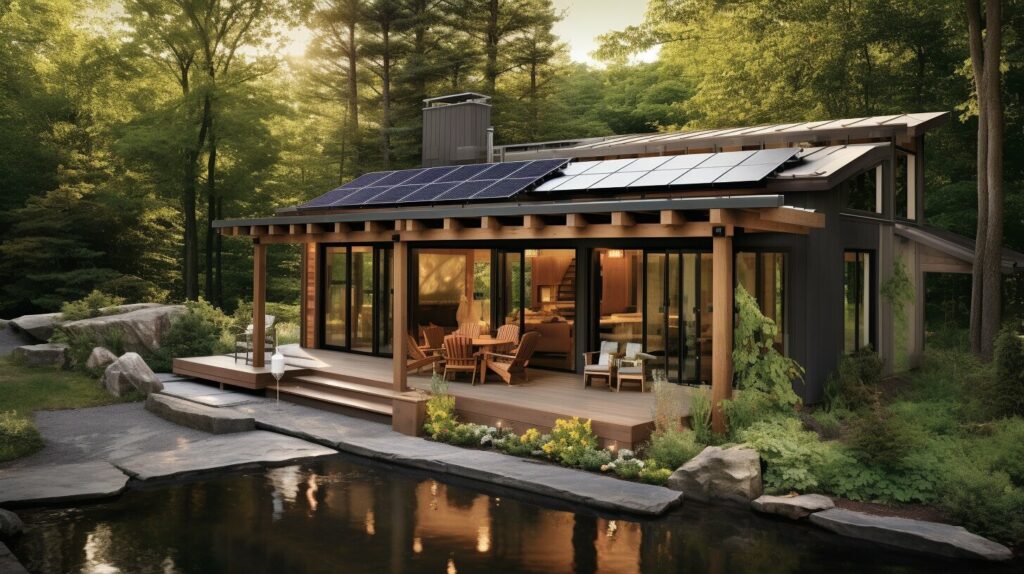
Maintenance and Troubleshooting
Proper maintenance and troubleshooting are crucial for optimal performance and longevity of your off grid HVAC systems. By following these tips, you can ensure that your sustainable HVAC solutions provide energy efficient off-grid heating and off-grid cooling systems.
Maintenance Tips
1. Regularly clean filters and coils to prevent debris build-up and maintain efficiency.
2. Check all electrical connections to ensure they are clean and tight. Loose connections can cause system failure and safety hazards.
3. Inspect the exterior of the system for any signs of wear or damage. Address any issues promptly to avoid further damage.
4. Schedule annual maintenance with a professional HVAC technician to perform a thorough inspection and tune-up.
Troubleshooting Tips
1. Check the thermostat to ensure it is set correctly and functioning properly.
2. Verify that the power source is on and the circuit breaker has not tripped.
3. Check air filters for dirt and debris and replace if necessary.
4. If the system is not providing sufficient heating or cooling, check for air leaks around windows and doors.
5. Consult the owner’s manual or contact a professional HVAC technician if issues persist.
Remember to always practice caution when performing any maintenance or troubleshooting on your off grid HVAC systems. If you are unsure or uncomfortable with the task, seek professional assistance.
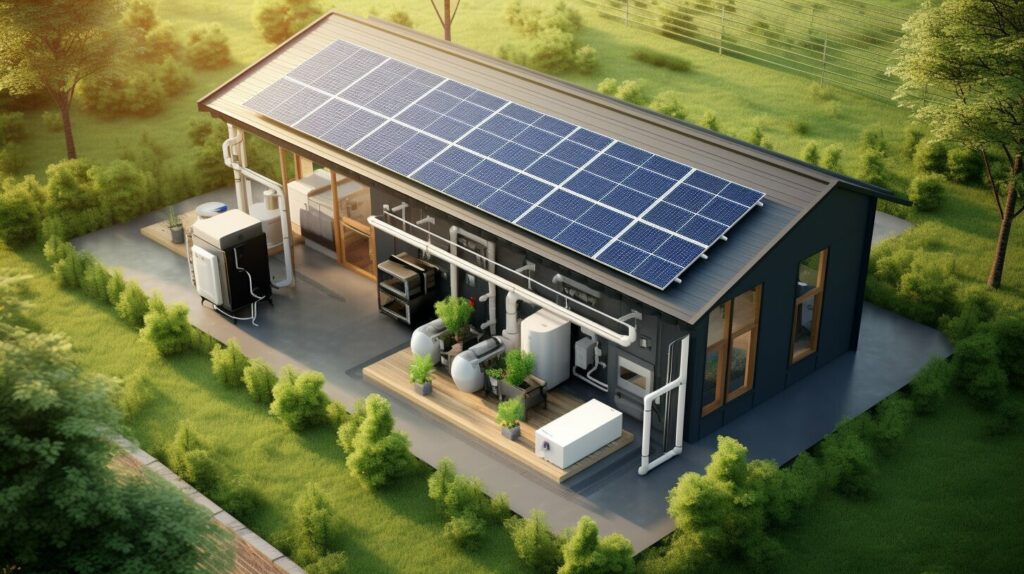
Government Incentives for Off Grid Heating and Cooling
If you’re looking to make the switch to off grid heating and cooling, you’ll be pleased to know that there are numerous government incentives available to support your sustainable HVAC solution. These incentives are designed to help you reduce your upfront costs and make renewable energy HVAC systems more affordable.
One popular incentive is the federal solar Investment Tax Credit (ITC), which provides a 26% tax credit for installations of solar thermal systems and photovoltaic panels. This tax credit applies to both residential and commercial systems and can be used to offset the costs of installation.
Many states and local governments also offer tax credits, rebates, and grants for renewable energy HVAC systems. For example, California offers the Self-Generation Incentive Program (SGIP), which provides incentives for the installation of energy storage systems, fuel cells, and other sustainable HVAC solutions for residential and commercial properties.
In addition to these financial incentives, some areas offer expedited permitting processes and net metering programs. Net metering allows you to earn credits for any excess energy your off grid HVAC system produces and feed it back into the grid, reducing your energy bills even further.
Before making your off grid heating and cooling system purchase, be sure to research the incentives available in your area and consult with a professional to determine your eligibility. Take advantage of these opportunities to make the switch to eco-friendly and cost-effective renewable energy HVAC solutions.
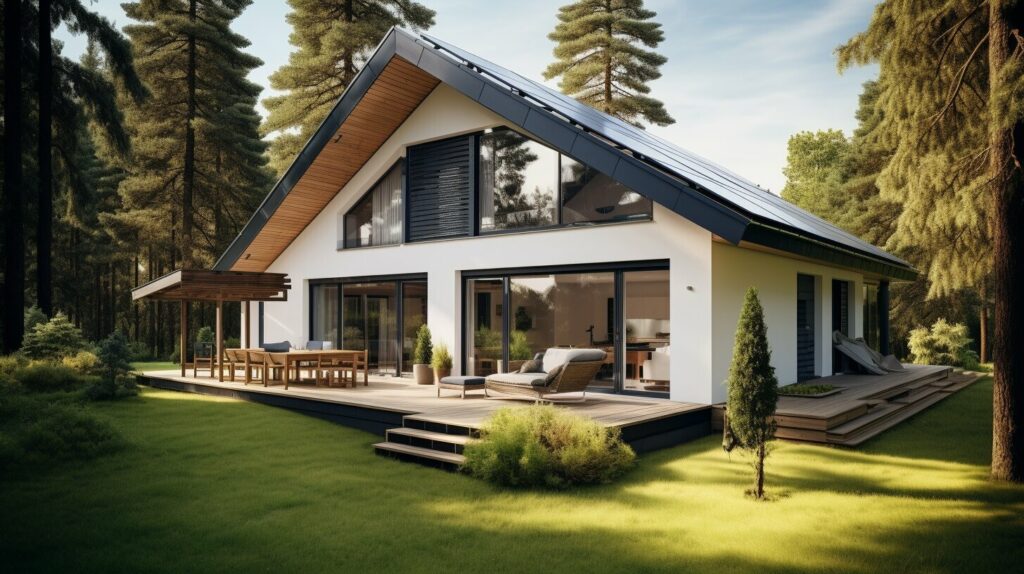
Successful Off-Grid HVAC Projects
Seeing real-life examples of successful off grid heating and cooling projects can provide valuable insights into sustainable HVAC solutions. These case studies demonstrate the range of options available for off grid heating and cooling, and how homeowners have addressed their specific energy needs.
Case Study 1: Solar Thermal System
One homeowner in Oregon installed a solar thermal system to provide off grid heating and hot water for their home. The system consists of a series of panels that capture heat from the sun and transfer it to a storage tank, which then heats the water for the home. This solution is not only sustainable but can also save money on utility bills by reducing the reliance on traditional heating methods.
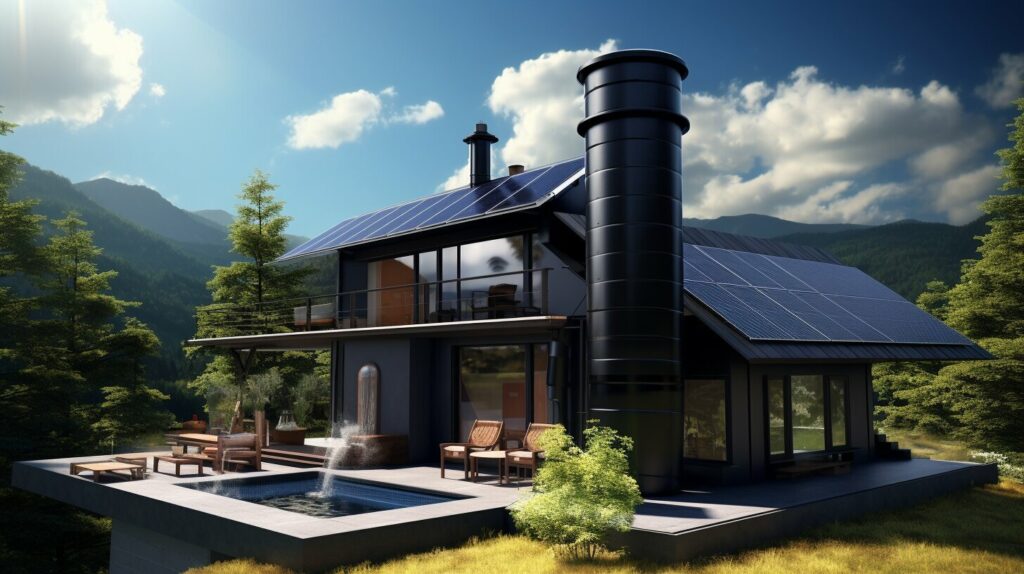
A homeowner in Colorado opted for a geothermal cooling system for their off grid home. The system uses the constant temperature of the earth to provide efficient cooling that is both eco-friendly and cost-effective. By utilizing a geothermal heat pump, this homeowner was able to keep their home comfortable while reducing energy consumption.
Case Study 3: Biomass Boiler
A homeowner in Vermont installed a biomass boiler for off grid heating. The boiler burn logs, wood chips, or pellets to generate heat, which is then transferred to the home through a series of pipes. This renewable energy HVAC solution not only provides effective heating but also utilizes local, renewable resources, and reduces the reliance on fossil fuels.
Case Study 4: Smart Thermostat and Heat Pump
A homeowner in California incorporated a smart thermostat and heat pump for their off grid heating and cooling needs. The smart thermostat allows for easy temperature control and can be remotely access through a smartphone app. The heat pump provides both heating and cooling, making it a versatile and efficient off grid HVAC system. By using renewable energy sources and smart technology, this homeowner was able to achieve optimal comfort while minimizing environmental impact.
These case studies demonstrate the range of off grid heating and cooling solutions available to homeowners. By evaluating your specific energy needs and considering sustainable HVAC solutions, you can achieve comfortable and eco-friendly off grid living.
Conclusion
Off grid heating and cooling solutions offer a sustainable and cost-effective way to keep your home comfortable throughout the year. By implementing energy efficient off-grid heating and off-grid cooling systems that use renewable energy HVAC technologies, you can reduce your reliance on the grid and minimize your carbon footprint.
Choose the Right Off Grid HVAC System for Your Home
When selecting an off grid HVAC system for your home, it’s essential to consider factors such as your energy needs, available renewable energy sources, and installation requirements. By doing so, you can ensure your sustainable HVAC solutions are optimized for performance and energy efficiency.
Maintain and Troubleshoot Your Off Grid HVAC Systems
Proper maintenance and troubleshooting are crucial to ensure the longevity and efficiency of your off grid HVAC systems. Regularly inspect, clean, and lubricate system components and ensure that you have a thorough understanding of the system to address any potential issues. Following these guidelines will help keep your off-grid heating and cooling systems running smoothly for years to come.
Government Incentives for Off Grid Heating and Cooling
Many governments offer incentives and rebates to homeowners who opt for renewable energy HVAC technologies. These incentives can help reduce upfront costs and make off grid heating and cooling more affordable. Be sure to check the available incentives in your area and take advantage of them to make your sustainable HVAC solutions more cost-effective.
Successful Off Grid Heating and Cooling Projects
Real-life examples of successful off grid heating and cooling projects provide inspiration and insights into the benefits of sustainable HVAC solutions. By seeing how other homeowners have implemented renewable energy HVAC technologies, you can learn from their experiences and make informed decisions about your off grid heating and cooling needs.
Overall, off grid heating and cooling solutions provide a sustainable, eco-friendly, and cost-effective way to keep your home comfortable all year round. Incorporating renewable energy HVAC technologies and following proper maintenance and troubleshooting guidelines will ensure that your off-grid heating and cooling systems operate efficiently and effectively for years to come.
FAQ
Q: What are off grid heating and cooling solutions?
A: Off grid heating and cooling solutions refer to sustainable HVAC systems that allow homeowners to heat and cool their homes without relying on the traditional power grid. These solutions utilize renewable energy sources and eco-friendly technologies to provide energy-efficient heating and cooling.
Q: Why should I consider off grid heating and cooling?
A: Off grid heating and cooling offer several benefits. Firstly, they help reduce your carbon footprint by utilizing renewable energy sources. Secondly, they can save you money on utility bills in the long run. Lastly, off grid heating and cooling systems provide independence from power outages and grid failures.
Q: What are the options for off grid heating?
A: There are various options for off grid heating. Some common sustainable HVAC solutions include solar thermal systems, biomass boilers, and heat pumps. These systems utilize renewable energy sources such as the sun and biomass to provide efficient heating for your home.
Q: What are the options for off grid cooling?
A: Off grid cooling solutions include evaporative coolers, geothermal cooling systems, and heat pumps. These eco-friendly HVAC systems utilize energy-efficient technologies to provide effective cooling while reducing energy consumption and environmental impact.
Q: What are some popular off grid heating and cooling technologies?
A: Some popular off grid heating and cooling technologies include smart thermostats, heat pumps, and energy storage systems. These technologies offer efficient and reliable off grid HVAC systems that can be controlled and optimized for energy savings.
Q: How do off grid heating and cooling systems benefit the environment?
A: Off grid heating and cooling systems benefit the environment by reducing reliance on fossil fuels and minimizing greenhouse gas emissions. By utilizing renewable energy sources and eco-friendly technologies, these systems help combat climate change and promote sustainability.
Q: How do I choose the right off grid HVAC system for my home?
A: When choosing an off grid HVAC system, consider factors such as your energy needs, available renewable energy sources, installation requirements, and budget. It is recommended to consult with a professional HVAC technician who can assess your specific needs and recommend the most suitable system for your home.
Q: How do I maintain and troubleshoot my off grid HVAC system?
A: Proper maintenance and troubleshooting are essential for the longevity and efficiency of your off grid HVAC system. Regularly clean and inspect the system, replace filters as needed, and schedule professional maintenance checks. In case of issues, refer to the manufacturer’s manual or contact a qualified technician for troubleshooting assistance.
Q: Are there any government incentives for off grid heating and cooling?
A: Many governments offer incentives and rebates to promote the adoption of renewable energy HVAC systems, including off grid heating and cooling. These incentives can help reduce the upfront costs and make sustainable HVAC solutions more affordable. Check with your local government or energy agencies to learn about the available incentives in your area.
Q: Can you provide examples of successful off grid heating and cooling projects?
A: Yes, there are numerous case studies of successful off grid heating and cooling projects. These examples showcase how homeowners have implemented sustainable HVAC solutions to achieve energy efficiency and reduce their environmental impact. By learning from these projects, you can gain insights and inspiration for your own off grid heating and cooling journey.

